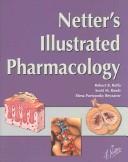| Listing 1 - 7 of 7 |
Sort by
|

ISBN: 1889325384 Year: 1999 Publisher: Madison Fence Creek
Abstract | Keywords | Export | Availability | Bookmark
 Loading...
Loading...Choose an application
- Reference Manager
- EndNote
- RefWorks (Direct export to RefWorks)
Book
ISBN: 1441963057 9786613074423 1441963065 1283074427 Year: 2010 Publisher: New York : Austin, Tex. : Springer Science+Business Media ; Landes Bioscience,
Abstract | Keywords | Export | Availability | Bookmark
 Loading...
Loading...Choose an application
- Reference Manager
- EndNote
- RefWorks (Direct export to RefWorks)
Cancer patients have benefitted greatly from recent advances in the drugs, dose regimens, and combinations used to treat their primary tumor and for the treatment or prevention of spread of their disease. Due to the advances in chemotherapy and other aspects of prevention, early detection, and treatment modalities, an increasing percentage of patients are surviving the disease. For some types of cancer, the majority of patients live decades beyond their diagnosis. For this they are forever thankful and appreciative of the drugs that helped lead to this increased survival rate. But no drug is devoid of adverse effects. This also applies to chemotherapeutic agents. The acute cytotoxic effects of these agents are well known––indeed are often required for their therapeutic benefit. The chronic adverse effects are varied and in some cases less well known. With the increase in survival rates, there has emerged a new awareness of these chronic adverse effects.
Antineoplastic agents --Side effects. --- Cancer --Chemotherapy --Complications. --- Cognition disorders. --- Neurotoxic agents. --- Cancer --- Cognition disorders --- Antineoplastic agents --- Neurotoxic agents --- Nervous System Diseases --- Kinetics --- Therapeutics --- Investigative Techniques --- Delirium, Dementia, Amnestic, Cognitive Disorders --- Poisoning --- Therapeutic Uses --- Mental Disorders --- Substance-Related Disorders --- Diseases --- Analytical, Diagnostic and Therapeutic Techniques and Equipment --- Biochemical Phenomena --- Pharmacologic Actions --- Psychiatry and Psychology --- Chemical Actions and Uses --- Chemical Phenomena --- Chemicals and Drugs --- Phenomena and Processes --- Drug Therapy --- Pharmacokinetics --- Cognition Disorders --- Neurotoxicity Syndromes --- Antineoplastic Agents --- Models, Animal --- Medicine --- Health & Biological Sciences --- Oncology --- Chemotherapy --- Complications --- Side effects --- Complications. --- Side effects. --- Neuropoisons --- Neurotoxicants --- Neurotoxins --- Anticancer agents --- Antineoplastic drugs --- Antineoplastics --- Antitumor agents --- Antitumor drugs --- Cytotoxic drugs --- Inhibitors, Neoplasm --- Neoplasm inhibitors --- Cognitive disorders --- Complications and sequelae --- Medicine. --- Cancer research. --- Biomedicine. --- Biomedicine general. --- Cancer Research. --- Cancer research --- Clinical sciences --- Medical profession --- Human biology --- Life sciences --- Medical sciences --- Pathology --- Physicians --- Poisons --- Drugs --- Psychology, Pathological --- Oncology. --- Tumors --- Health Workforce --- Biomedicine, general. --- Neurotoxicity Syndromes. --- Drug-Related Side Effects and Adverse Reactions. --- Models, Animal. --- chemically induced. --- pharmacokinetics. --- toxicity. --- Animals, Model. --- Encephalopathy, Toxic --- Nervous System Poisoning --- Neurotoxic Disorders --- Neurotoxin Diseases --- Neurotoxin Disorders --- Toxic Encephalitis --- Poisoning, Nervous System --- Encephalitides, Toxic --- Encephalitis, Toxic --- Encephalopathies, Toxic --- Nervous System Poisonings --- Neurotoxic Disorder --- Neurotoxicity Syndrome --- Neurotoxin Disease --- Neurotoxin Disorder --- Poisonings, Nervous System --- Syndrome, Neurotoxicity --- Syndromes, Neurotoxicity --- Toxic Encephalitides --- Toxic Encephalopathies --- Toxic Encephalopathy --- Adverse Drug Event --- Adverse Drug Reaction --- Drug Side Effects --- Drug Toxicity --- Side Effects of Drugs --- Toxicity, Drug --- Adverse Drug Events --- Adverse Drug Reactions --- Drug Event, Adverse --- Drug Events, Adverse --- Drug Reaction, Adverse --- Drug Reactions, Adverse --- Drug Related Side Effects and Adverse Reactions --- Drug Side Effect --- Drug Toxicities --- Effects, Drug Side --- Reactions, Adverse Drug --- Side Effect, Drug --- Side Effects, Drug --- Toxicities, Drug --- Pharmaceutical Preparations --- Contraindications, Drug --- Drug Interactions --- Clinical Trials, Phase IV as Topic --- adverse effects --- toxicity --- Experimental Animal Models --- Laboratory Animal Models --- Animal Model --- Animal Model, Experimental --- Animal Model, Laboratory --- Animal Models --- Animal Models, Experimental --- Animal Models, Laboratory --- Experimental Animal Model --- Laboratory Animal Model --- Model, Animal --- Model, Experimental Animal --- Model, Laboratory Animal --- Models, Experimental Animal --- Models, Laboratory Animal --- Animal Experimentation
Multi
ISBN: 9781441963062 9781441963055 9781441963079 9781493940998 Year: 2010 Publisher: New York, NY Springer
Abstract | Keywords | Export | Availability | Bookmark
 Loading...
Loading...Choose an application
- Reference Manager
- EndNote
- RefWorks (Direct export to RefWorks)
Cancer patients have benefitted greatly from recent advances in the drugs, dose regimens, and combinations used to treat their primary tumor and for the treatment or prevention of spread of their disease. Due to the advances in chemotherapy and other aspects of prevention, early detection, and treatment modalities, an increasing percentage of patients are surviving the disease. For some types of cancer, the majority of patients live decades beyond their diagnosis. For this they are forever thankful and appreciative of the drugs that helped lead to this increased survival rate. But no drug is devoid of adverse effects. This also applies to chemotherapeutic agents. The acute cytotoxic effects of these agents are well known––indeed are often required for their therapeutic benefit. The chronic adverse effects are varied and in some cases less well known. With the increase in survival rates, there has emerged a new awareness of these chronic adverse effects.
Human biochemistry --- Oncology. Neoplasms --- Human medicine --- medische biochemie --- geneeskunde --- oncologie

ISBN: 1929007604 9781929007608 Year: 2005 Publisher: Teterboro Icon learning systems
Abstract | Keywords | Export | Availability | Bookmark
 Loading...
Loading...Choose an application
- Reference Manager
- EndNote
- RefWorks (Direct export to RefWorks)
Pharmacology. --- farmacologie --- Pharmacologies --- Pharmaceutical Preparations --- pharmacology --- Pharmacology, Clinical --- Pharmacology --- Drug effects --- Medical pharmacology --- Medical sciences --- Chemicals --- Chemotherapy --- Drugs --- Pharmacy --- Physiological effect --- Drug Therapy --- Pharmacology - Atlases
Book
ISBN: 9781441963062 9781441963055 9781441963079 9781493940998 Year: 2010 Publisher: New York NY Springer New York Imprint Springer
Abstract | Keywords | Export | Availability | Bookmark
 Loading...
Loading...Choose an application
- Reference Manager
- EndNote
- RefWorks (Direct export to RefWorks)
Cancer patients have benefitted greatly from recent advances in the drugs, dose regimens, and combinations used to treat their primary tumor and for the treatment or prevention of spread of their disease. Due to the advances in chemotherapy and other aspects of prevention, early detection, and treatment modalities, an increasing percentage of patients are surviving the disease. For some types of cancer, the majority of patients live decades beyond their diagnosis. For this they are forever thankful and appreciative of the drugs that helped lead to this increased survival rate. But no drug is devoid of adverse effects. This also applies to chemotherapeutic agents. The acute cytotoxic effects of these agents are well known--indeed are often required for their therapeutic benefit. The chronic adverse effects are varied and in some cases less well known. With the increase in survival rates, there has emerged a new awareness of these chronic adverse effects.
Human biochemistry --- Oncology. Neoplasms --- Human medicine --- medische biochemie --- geneeskunde --- oncologie

ISBN: 0387966021 9780387966021 Year: 1988 Publisher: New York (N.Y.): Springer,
Abstract | Keywords | Export | Availability | Bookmark
 Loading...
Loading...Choose an application
- Reference Manager
- EndNote
- RefWorks (Direct export to RefWorks)
Molecular pharmacology. --- Pharmacology. --- Molecular pharmacology --- PHARMACOLOGY
Book
ISBN: 9780197517277 Year: 2021 Publisher: New York, NY : Oxford University Press,
Abstract | Keywords | Export | Availability | Bookmark
 Loading...
Loading...Choose an application
- Reference Manager
- EndNote
- RefWorks (Direct export to RefWorks)
"Benzodiazepines were developed to treat legitimate medical needs. However, unbridled success and prescribing beyond their intended duration of use and the available data has led to excessive prescribing, extended utilization beyond good therapeutic practice, and unintended adverse effects and substance use disorder. This book is the first to bring to light and discuss the largely unrecognized and enigmatic problem of an exceedingly prolonged withdrawal syndrome from benzodiazepines that can persist for months or years in susceptible patients, and the medical need for better evidence-based prescribing of benzodiazepines, and a call for the recognition and better treatment of the prolonged withdrawal syndrome"--
Anti-Anxiety Agents --- Benzodiazepines --- Substance Withdrawal Syndrome --- Anxiolytiques --- Tranquillisants --- Benzodiazépines --- Syndrome de sevrage --- adverse effects --- Effets secondaires.
| Listing 1 - 7 of 7 |
Sort by
|

 Search
Search Feedback
Feedback About UniCat
About UniCat  Help
Help News
News